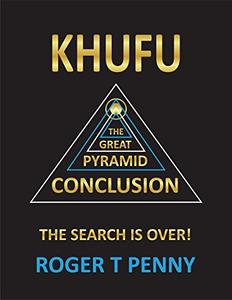
Free Download Khufu The Great Pyramid Conclusion The Search is Over by Robert Crielly
English | 2018 | ISBN: N/A | ASIN: B07FGVJCDH | 163 pages | EPUB | 3.21 Mb
The looting of pyramids and mastabas in Egypt was big business especially just after a Pharaoh was entombed with his enormous wealth in treasures. The looters are thought to have held inside knowledge from having been involved in the construction of the tombs and at times they were even part of the funerary procession.
Mummified Pharaohs bodies were stolen and sold to collectors or desecrated. Nothing was sacred.
The Medjay had a job on their hands trying to maintain security and although they were feared by many, it didn’t stop robbers repeating raids on tombs as the rewards of their ill-gotten gains were very high indeed.
The Medjay and the courts were busy and it was not uncommon for hefty bribes to be paid to officials to allow the guilty to walk free.
A vicious circle of events therefore surrounded the looting, concealment and black-market sales of precious articles of jewelry, gold and mummified Pharaohs.
Pharaoh Khufu was well aware of such activities. He did not wish his body desecrated or his treasure looted. He needed a full-proof method to conceal himself and his wealth into eternity. A great architect and master mason were needed to build his great pyramid.
The Great Pyramid has therefore attracted the attention of the world ever since it was built because Pharaoh Khufu and his treasures have remained highly elusive. Until now.
The architect responsible for the creation of the Great Pyramid and the elusive tomb together with a vast wealth in treasure was the architect and vizier to Pharaoh Khufu. His name is Hemiunu known to his family and close associates as "Hemon".
Archaeologists, Egyptologists and teams of scientists and explorers have endeavored for many decades to unravel the secrets of the Great Pyramid with some success.
This book explains in detail how the pyramid was built and designed to prevent giving up its deepest secret; the last resting place of Pharaoh Khufu.
Despite the apparent absence of the famous mummie and his treasure, you are about to learn how the method that was used to build the Great Pyramid was also used to conceal Pharaoh Khufu.
The Great Pyramid is the oldest and last remaining of the original 7 ancient wonders of the world.
For the first time you will discover how Pharaoh Khufu and the architect and vizier, Hemon, designed and built the most iconic and mysterious tomb the world has taken so much interest in using ramps and a hydraulic piston.
What you are about to discover has not been revealed before.
The six pieces of the puzzle that reveal how the pyramid was built and where Pharaoh Khufu is securely entombed are actually in full view yet embedded and encoded using the Eye of Horus as a template.
Hemon not only designed the perfect illusion to conceal Pharaoh Khufu and his treasure but he then cleverly re-arranged and disguised the pieces of the puzzle to stop all tomb raiders.
Be prepared to be surprised as never before.
The facts revealed in this book are unique yet are based on features that exist within the Great Pyramid.
Calculations reveal that the architect used the Queens Chamber as a proving ground for what happened in the Kings Chamber.
The purpose of the so called "air shafts" in each chamber is now known together with their relationship to the "sarcophagus" and various features on the floor in the Kings Chamber. The 54 cm step in the passageway to the Queens Chamber was a "bath" used to collect water which dictated the design of the "air shafts" in the Kings Chamber.
These are but a few of the subjects covered and described in detail that are unique to any previous theories proposed.
The diagrams portray the actual interior of the pyramid including how tunnels were constructed to allow the builders to construct the pyramid from the inside-out.
You will discover how the "concave" faces of the pyramid support a 46 m high hollow tower and provides resistance to earthquakes.










Leave a Reply
You must be logged in to post a comment.